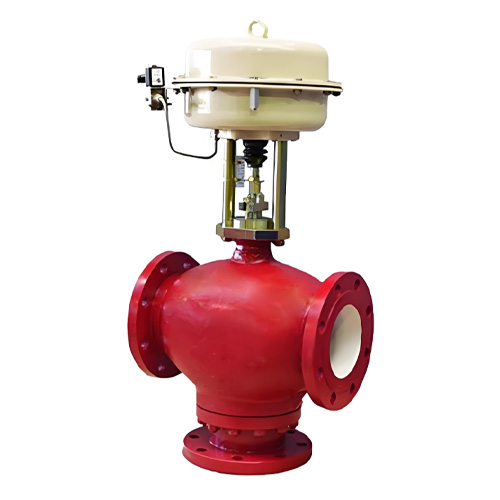What Is a Smart Control Valve?
A smart control valve is an advanced flow regulation device that integrates sensors, digital communication, and automated controls. Unlike traditional valves, smart valves can monitor, self-adjust, and optimize flow, pressure, and temperature in real-time. They are commonly used in oil & gas, chemical, HVAC, water treatment, and pharmaceutical industries, where precision and reliability are critical.
Key Features of Smart Control Valve
Now that we understand what a smart control valve is, let’s take a closer look at the core features that make these devices so valuable in today’s industrial systems.
- Real-Time Monitoring
Integrated sensors constantly track flow rate, pressure, and valve position, providing live data to centralized systems. - Digital Communication Protocols
Support for protocols like HART, Modbus, and Foundation Fieldbus enables seamless integration into modern industrial networks. - Self-Diagnostics
Smart valves can identify internal wear, leaks, or blockages early, reducing unplanned downtime. - Remote Control & Adjustment
Operators can remotely configure or shut down valves, enhancing safety and efficiency.
Benefits for Industrial Application
These features are more than just technical upgrades—they translate into real-world operational advantages. Here’s how smart control valves deliver meaningful value across industrial processes.
- Improved Efficiency
Smart control valves optimize system performance by adjusting flow dynamically, reducing energy consumption. - Predictive Maintenance
Early fault detection extends valve life and minimizes repair costs, which is ideal for mission-critical systems. - Process Accuracy
Digital controls maintain tight tolerances even under variable load conditions, crucial in batch processing and continuous flow systems. - Data-Driven Decision Making
Access to operational data supports better planning and system optimization.
Applications of Smart Control Valve
Understanding the benefits is one thing, but seeing how they apply to real-world systems is even more compelling. Let’s explore some of the most common industrial applications where smart valves make a difference.
- Oil & Gas
Regulating pressure in upstream drilling or downstream refining systems. - Water Treatment
Ensuring accurate dosing and pressure control in filtration and purification stages. - HVAC Systems
Balancing heating or cooling water flow for energy-efficient building management. - Food & Beverage
Maintaining sterile, consistent flow in automated production lines.
Choosing the Right Smart Control Valve
Not all smart control valves are created equal. Selecting the right one depends on multiple factors, including system requirements, media type, and integration needs. Here are some key considerations to guide your decision.
- Valve Type: Globe, ball, butterfly, or diaphragm
- Material Compatibility: Stainless steel, brass, or polymer for corrosive environments
- Communication Needs: HART vs. Modbus vs. wireless
- Operating Conditions: Temperature, pressure, and media type
Conclusion
As industries push toward automation and smarter infrastructure, smart control valves are rapidly becoming essential for efficient and safe operations. Whether you’re upgrading an existing system or designing a new one, investing in the right intelligent valve technology can greatly enhance control, reduce costs, and ensure reliability.
Looking to source or customize smart control valves? Contact BESQO Marine to explore solutions tailored to your industrial needs.
